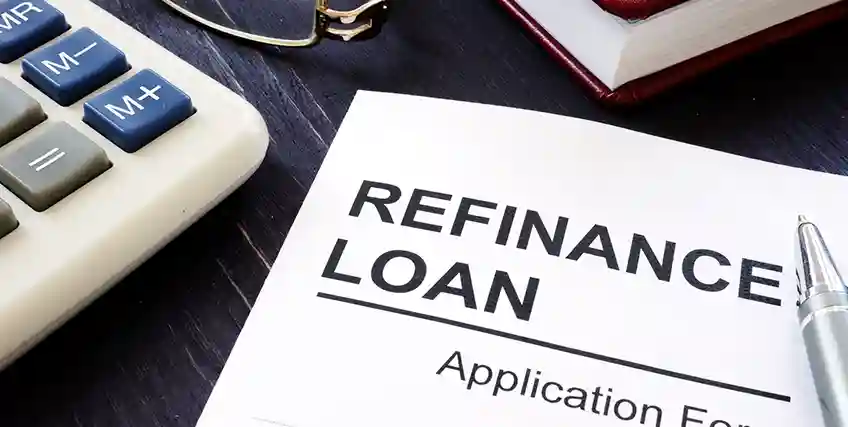How to Get a Business Loan with Bad Credit in 2025 Options That Still Work
June 06, 2025 | Last Updated on: June 09, 2025

If you are running a business with bad credit, it may give you a feeling of lifting weights on your ankles. This usually stems from hard times in personal credit history or a low business credit score, making every financial step challenging. You may feel that every opportunity to raise money is out of your reach, and when you need business funding for growth, you won’t be able to reach out to the traditional lenders. Although small business funding with bad credit with online lenders may be open to you.
What small business lenders won’t tell you is that bad credit business loans are not just your last resort of financing option for budding entrepreneurs. Instead, they have become a legitimate financial tool in the year 2025, that business owners use for building business credit and successful companies, especially when the credit score is low.
If you have a thin or unstable credit history, you may be able to get a small business loan when there is no credit check. But there are lenders who will want to go through your credit as part of their application process. Whereas there are some who may waive the requirements like these, perform a smooth inquiry, not affecting your credit score. However, no credit check business loans are generally expensive as they have high interest rates, short terms, and fees.
In this article you will learn how the options available for your loan options and how you can avail the same.
Loan approval strategies for a business loan with low credit
Clear communication and timely updates are vital in boosting approval success rates. For small business owners seeking funding, especially those with bad credit, building trust with lenders is more important than ever to secure quick approvals.
Technological advancements and stronger lender relationships make fast loan approvals increasingly achievable. Banks are adopting innovative methods to streamline the approval process, making small business funding accessible even for applicants with less-than-perfect personal credit scores. This means businesses can promptly receive the funds they need to grow and thrive.
Ensuring complete and accurate documentation
You should try to keep all the necessary documents with you when you are applying for small business funding with bad credit. A lot of lenders want to see your proof of income, credit reports, and bank statements.
If you have all these in an organized form with you, it will increase your chances of meeting eligibility requirements and speed things up. But if you misplace any of these documents, it can delay your procedure. It is always better to arrange your documents in a folder, use online tools, and keep digital copies of your documents, which can be easily accessible to you. You should also try avoiding common mistakes by cross-checking all the details twice. If you miss anything, it can lead to the denial of your application.
One of the common pitfalls you must avoid is failing to update expired documents when applying for a no-credit business loans. You should make sure that you pay a recent stub and update your tax forms regularly. You should also avoid hastiness, which can overlook important compliance.
Building a strong relationship with your lender
You should try developing a strong relationship with your lender, as many applicants talk to their lender before they apply for small business funding with bad credit. In this case both sides are familiar with the expectations, which makes the application procedure smooth.
If you are keeping transparency about your finances, it will take you closer to your small business funding with bad credit. This attitude will develop trust amongst your lender to provide you with a loan amount, after making an informed decision. Moreover, lenders who respond to document requests within a day increase the chance of loan approval significantly.
A strong relationship will also involve the criteria of knowing your lender. You should talk openly about the cash flow of your business and the history of business financing. You should explain any oddity or if there is a shift in your record. Transparency helps build trust and with approvals of small business funding with bad credit.
The conversation you have with your lender should have a mutual benefit. Therefore, when you apply for any type of loan with poor credit, you should value the perspective of the lender. Moreover, lenders will also like to know how the funds will be used by you for your business, so it's better to keep the discussion honest and clear which will lead to a fast business loan with no credit check.
If you are able to meet these strategies for the loan program you are opting for, you will be approved for small business funding with bad credit.
Types of small business funding with bad credit options
Below mentioned are some of the business loan options that may not require any type of credit check:
Invoice factoring
Invoice factoring is a popular funding option for small businesses, especially those facing cash flow challenges. Instead of taking out a traditional loan, businesses sell their unpaid customer invoices to a factoring company. The factoring company then assumes responsibility for collecting payment directly from the clients.
This method isn’t technically a loan, which makes it appealing for businesses with a low credit score. Approval is typically based on the creditworthiness of your customers, not your own, making invoice factoring a viable solution when traditional financing isn’t accessible.
Merchant cash advances (MCAs)
Merchant cash advance, although it is not a loan, its repayment terms are made through a percentage of everyday sales, which is automatically deducted from your annual revenue. There is a possibility in some cases that your minimum credit score will not be required.
Payment processor loans
It is a type of merchant financing that is offered by payment processor companies. It is usually exclusive to their customers. The repayment of this type of loan is automatically collected from the seller's account, and the approvals are based on the number of sales taking place for your new businesses.
Alternatives to no-credit-check business loans
If you can wait until your credit score improves before seeking financing, you’ll likely qualify for better interest rates and repayment terms.
However, certain providers offer small business funding with bad credit options that don’t rely heavily on credit scores. These alternatives may consider personal assets or other factors to help you secure the funding you need sooner.
Crowdfunding
It is a good alternative funding option for startups and small business funding with bad credit to raise money with the help of social media and the internet. You can start a campaign with the help of crowdfunding platforms and share information about your funding goals, and also, if you have any established businesses.
Nontraditional lenders
An alternative, or nontraditional lender, is a type of traditional bank or a credit union. There are a lot of nontraditional lenders like nonprofit lenders, community development financial institutions (CDFIs), or online lenders, who provide a safe and fair option that doesn’t require stellar credit.
Small-business grants
Business grants can be provided by state and federal agencies and private companies. You generally don’t require good credit for qualifying a business grant, some of them are available especially for startups.
Final thoughts
Navigating small business funding with bad credit challenges is possible with the right strategies and knowledge. While traditional lenders may be hesitant, today’s funding landscape offers various solutions, from invoice factoring to merchant cash advances and crowdfunding.
Building strong lender relationships, maintaining organized documentation, and understanding all available options can increase your chances of approval. As small businesses continue to grow despite credit limitations, these funding tools are no longer lasting-resort options but strategic resources.
By staying proactive, transparent, and informed, business owners with low credit can access the capital they need to thrive and succeed in 2025 and beyond.
FAQs about small business funding bad credit
Can I get an SBA loan with a 500 credit score?
The Small Business Administration (SBA) microloan program typically requires a minimum credit score of 620. However, some lenders may ask for a score closer to 640, depending on your overall business profile and financial history. In most cases, collateral is also required, as it helps reduce the lender’s risk and improves your chances of approval.
Can I get a business loan using my EIN number?
You can usually apply for a business loan using your Employer Identification Number (EIN). While the EIN identifies your business, it's only one part of the loan application process. Lenders will also look at your business's financial health, credit history, including your FICO score—and the strength of your business plan. You may also be asked to provide a personal guarantee, especially if your business is new or lacks an established credit profile. This gives lenders added security and can improve your chances of approval.
Can I get a business loan if I personally have bad credit?
Startup business loans and small business funding with bad credit often come with more flexible credit score requirements, sometimes accepting scores in the low 500s. However, with a lower score, your financing options may be limited. Most lenders prefer a minimum FICO score of 600 or higher and typically require that your business has been operating for at least six months. A dedicated business bank account can also strengthen your application by showing organized financial activity and helping lenders assess your cash flow more accurately.
Can you get a business loan with no revenue?
Getting a business loan with no credit or revenue is possible, especially if you're starting out. However, the process can be more challenging, and the loan terms may not be as favorable as those of businesses with an established history. Some credit unions and alternative lenders are more willing to work with startups, offering flexible options based on your business plan, potential, or collateral rather than just your credit profile.
How long after getting LLC can I get a loan?
An LLC can qualify for an SBA loan if it meets both the U.S. Small Business Administration’s criteria and the specific requirements of the lender. Most financial institutions look for at least two years of business history, solid financials, and a good credit score. However, there are also options for small business funding with bad credit, though they may come with stricter terms or require additional documentation. Strong business performance and a clear plan can improve your chances, even if your credit isn't perfect.




